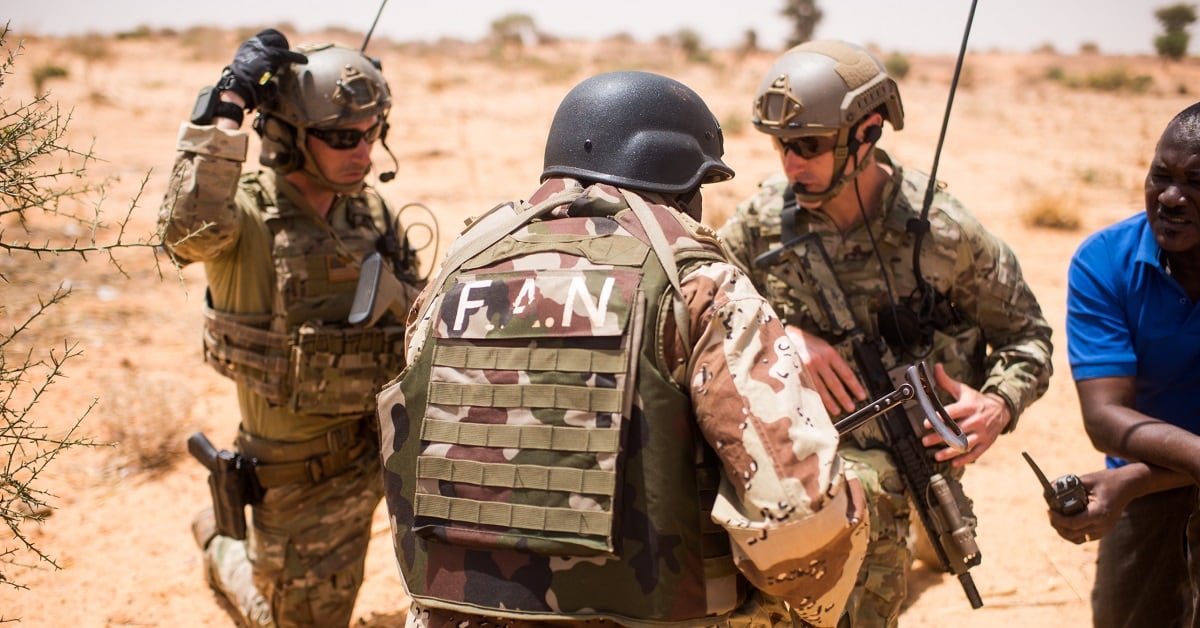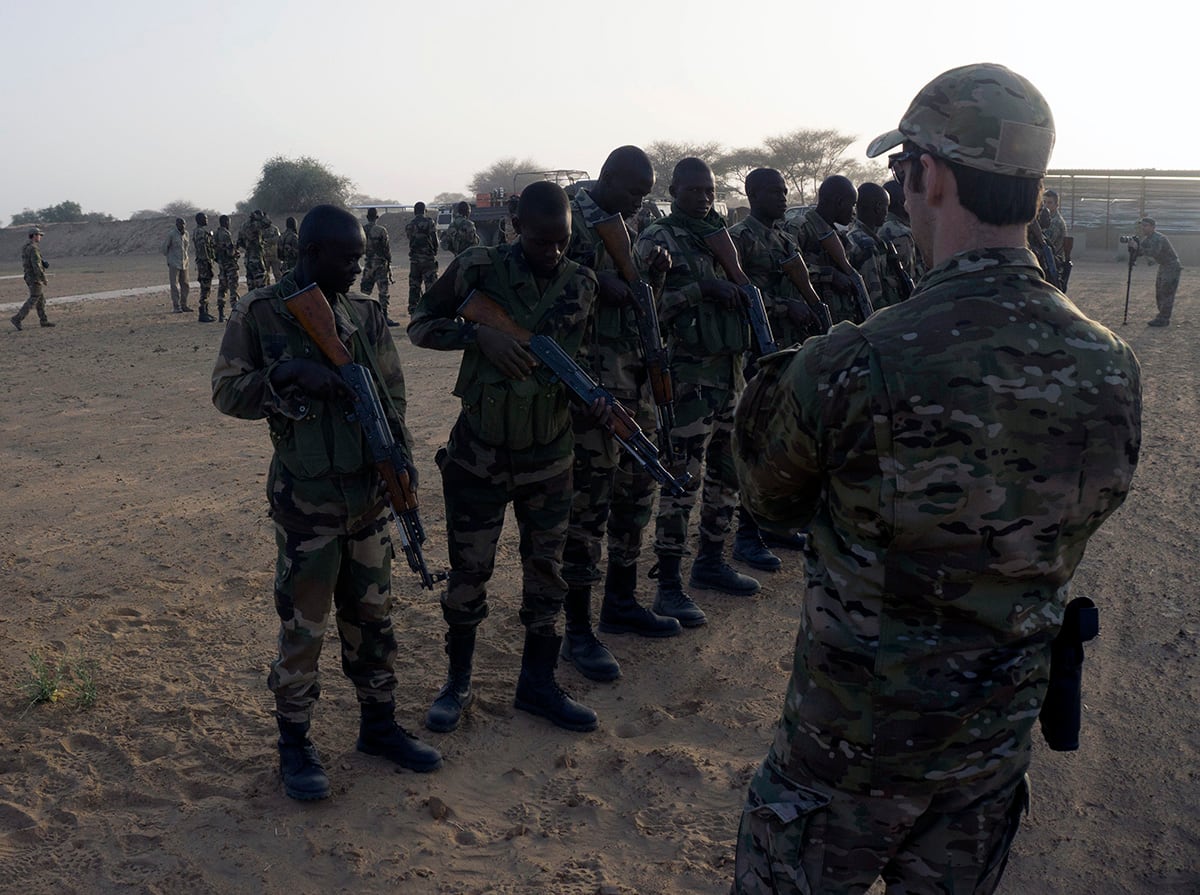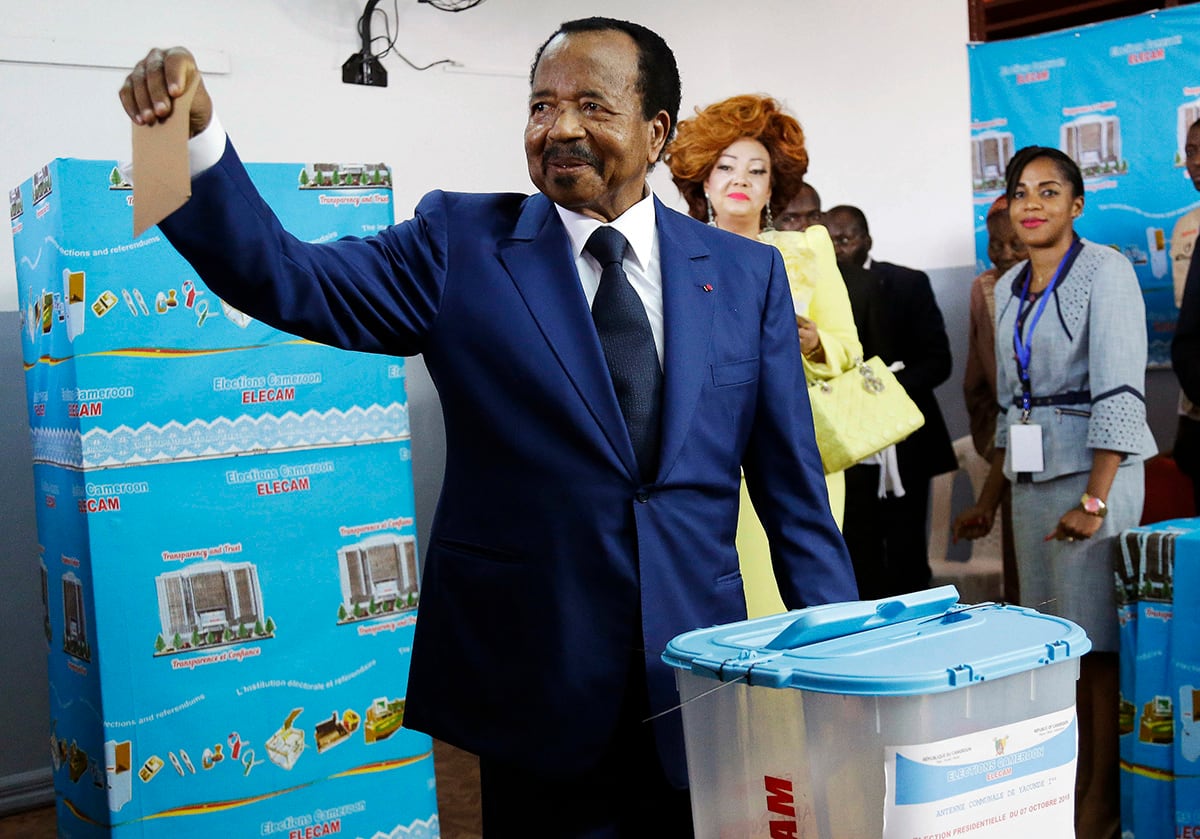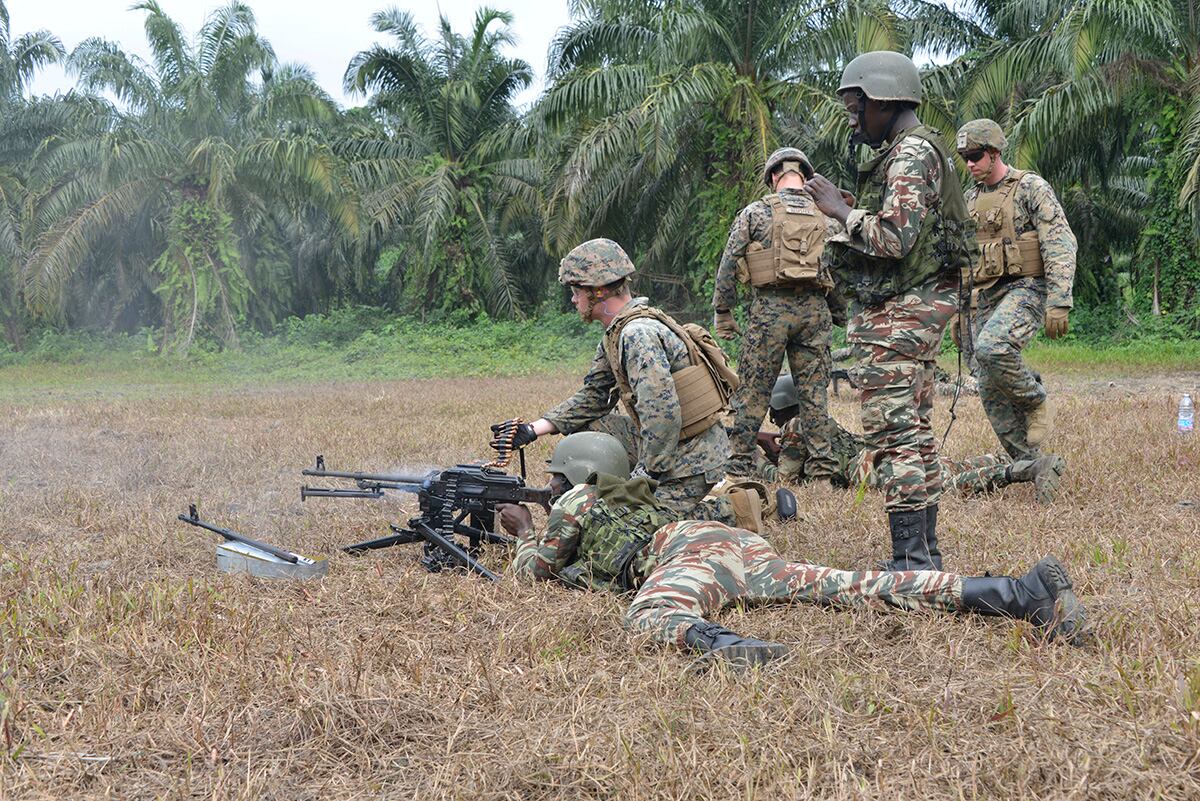JOHANNESBURG — The United States said Wednesday it is cutting some military aid to Cameroon over human rights concerns after growing allegations of abuses by security forces, a significant step against a solid ally in central Africa that is gripped by fighting between the government and Anglophone separatists.
The U.S. decision comes after videos circulated online last year showing Cameroonian security forces shooting and killing civilians, including women with small children strapped to their backs. The videos were documented by Amnesty International and global media outlets.
The top U.S. diplomat for Africa, Tibor Nagy, said in December that he feared the separatist crisis could get “much, much” worse and warned against a “brutal response” to extremism, saying it could lead to radicalization. Cameroon also faces a deadly threat from fighters with the Boko Haram extremist group based in neighboring Nigeria.
The United Nations has said some 430,000 people in Cameroon's Southwest and Northwest regions have fled the fighting between security forces and English-speaking separatists who seek independence from the largely French-speaking country.
There was no immediate comment from Cameroon's government on the U.S. action.
RELATED

The Pentagon and State Department said the reduced U.S. support involves armored vehicles, boats, aircraft upkeep and parts, helicopter training and an invitation to a partnership program.
"We do not take these measures lightly, but we will not shirk from reducing assistance further if evolving conditions require it," the State Department said. It added: "We emphasize that it is in Cameroon's interest to show greater transparency in investigating credible allegations of gross violations of human rights security forces, particularly in the Northwest, Southwest, and Far North Regions."
A Pentagon spokeswoman, Navy Cmdr. Candice Tresch, gave no dollar amount for the value of assistance being cut.
RELATED

In a statement, Amnesty International's deputy director for advocacy and government programs, Adotei Akwei, urged the U.S. to suspend all security assistance "until the Cameroonian government can show it has not been utilized to commit serious violations of international law and persons responsible have been held accountable."
Akwei also called on the Trump administration to press other donors to review their assistance to Cameroon and insist on reforms.
In August, Amnesty International said a "horrifying" video circulating on social media showed Cameroon's security forces firing automatic weapons on at least a dozen unarmed civilians cowering against a wall during a counterterror operation in the Far North region. The rights group said its analysis found the video was apparently made by soldiers and recorded before May 2016.
"Speaking in French, the soldiers describe themselves as carrying out a 'kamikaze' operation," the rights group said.
That followed another video in July that Amnesty International said showed Cameroonian forces shooting two women with small children strapped to their backs as suspected Boko Haram extremists. Cameroon sought to dismiss that video, with its ambassador to Canada telling reporters in Washington: "You know what Photoshop can do."

The growing concerns have posed a challenge for 85-year-old President Paul Biya, who is one of Africa's longest-serving leaders. He became president in 1982 and won another term in October's election, after which the military launched fresh offensives against the separatists.
Biya has ordered investigations into the shootings shown in the videos and some people have been arrested, government spokesman Issa Tchiroma Bakary has said.
In the past, Cameroon's government has denied such killings by security forces as they combat Boko Haram, whose fighters have spilled over the border into the Far North region and carried out bombings and other attacks.
Associated Press writers Matthew Lee and Lolita C. Baldor in Washington contributed to this report.




